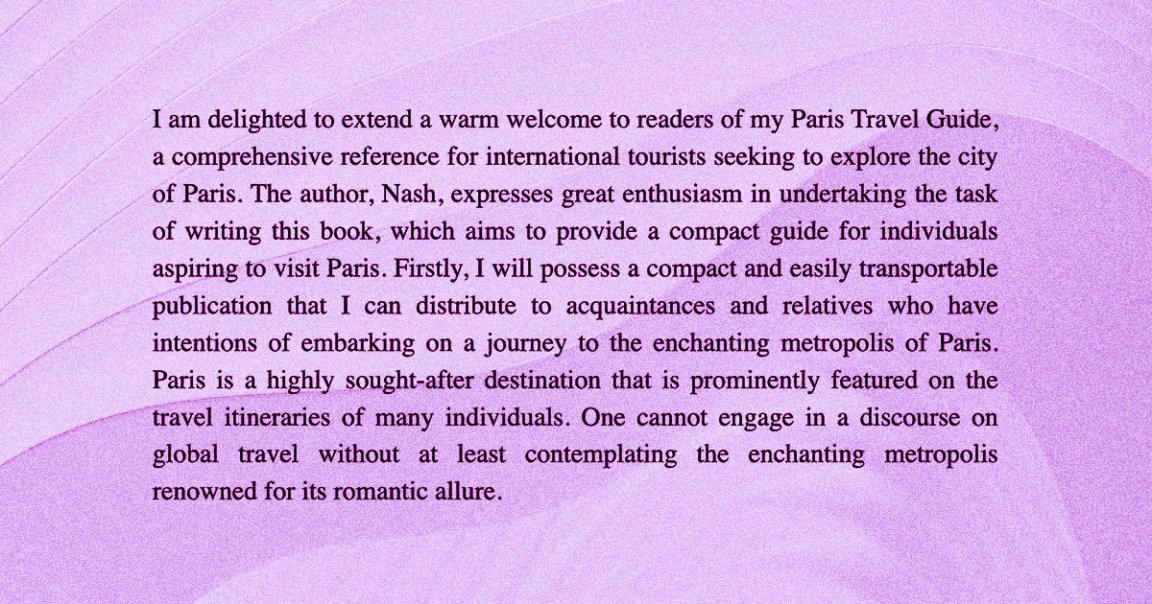
Go Off, Katherine
The newest addition to the growing garbage heap of AI-generated nothingstuff continuing to clog the web? Generic, shoddily-written, allegedly AI-generated travel guides, flooding Amazon en masse in recent months.
Per The New York Times, the sham guides often claim to be written by acclaimed travel authors, with scammers also sometimes taking the time to mislead potential customers by whipping up phony 5-star reviews. Sellers also tend to keep prices pretty low, and Amazon users seem to be biting. And they’re predictably less than pleased with what they wind up getting in the mail.
“This was a rip-off. It has the most generic info [about] Paris that anyone planning a trip has already gathered in planning the trip. It is NOT the ultimate super cheap guide, as it offers NO such info,” reads a one-star review on a seemingly AI-generated guide called “
“This is fraudulent advertising and what we call bait and switch,” they added. “How pathetic. DO NOT BUY THIS.”
Poetic Justice
If you’re sharp enough, and paying attention, you’ll be able to see the warning signs of AI generation in many of the listings. Per the NYT, author profiles — if they exist — are comically vague, sometimes featuring blatantly AI-spun profile photos. The listings’ descriptions also tend to be written in a bland, formulaic style becoming increasingly synonymous with AI-drafted text.
But most people aren’t trained to watch for these telltale signs when buying books online. And unfortunately for Amazon, it’s not just travel guides scammers are AI-generating, but also, AI-generated books about “cooking, programming, gardening, business, crafts, medicine, religion and mathematics, as well as self-help books and novels, among many other categories” that the NYT found over the course of its reporting. As for Amazon, the company claims to work really, really hard to make sure its library is well-vetted, thanks.
“All publishers in the store must adhere to our content guidelines,” an Amazon spokesperson told the NYT. “We invest significant time and resources to ensure our guidelines are followed and remove books that do not adhere to these guidelines.” Sure, but the fact remains:
Amazon is clearly seeing a lot of AI-generated muck seep through the cracks, and its users are getting slighted as a result — an emerging pattern that certainly prompts questions about elements of Amazon’s near-term trustworthiness.
And yet, this could all end up being relatively poetic. Back in the dot-com era, Amazon used burgeoning technology to pioneer the bookstore-pocalypse; now, a new technological shift could make the e-commerce giant so unreliable that users will be driven to other marketplaces — and maybe, God willing, actual brick-and-mortar bookstores, which Amazon continues to otherwise render an endangered species.
More on very bad AI-generated travel guides: BuzzFeed Is Quietly Publishing Whole AI-Generated Articles, Not Just Quizzes